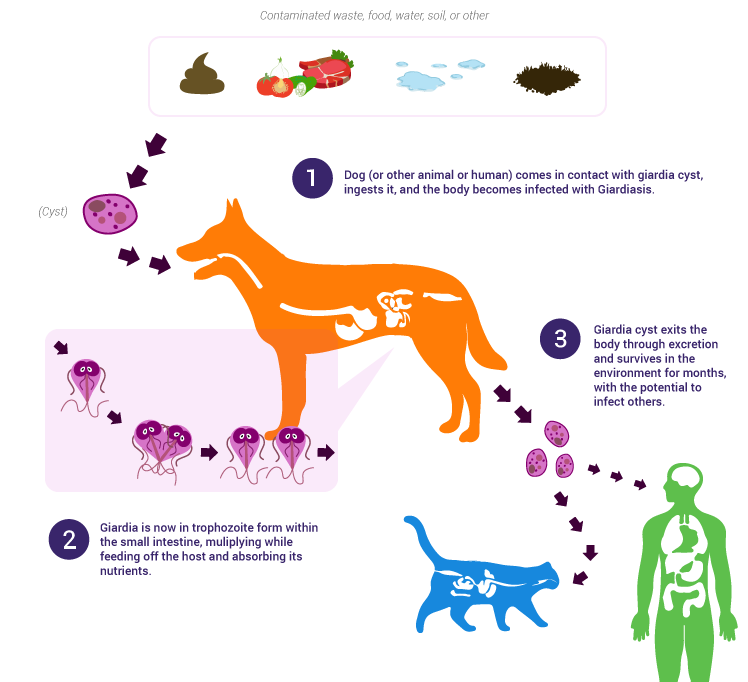Does your dog have severe diarrhea? One of the possible differential diagnoses is giardiasis.
This condition, caused by a parasite, makes the dog feel very uncomfortable with nausea and abdominal pain. In addition, this disease is a zoonotic disease, that is, it can be transmitted to humans. This parasite is very resistant and the treatment of this disease is not always easy.
- Unfortunately.
- This disease is quite common in dogs and that is why Animal Expert wrote this article about giardia in dogs: causes.
- Symptoms and treatment.
Giardia is a protozoa, the two most common species are Giardia lamblia and Giardia duodenalis. These microorganisms are installed in the intestines of the dog or any other infected animal.
When in the intestine, this microorganism occurs in a mobile, tropozoe or cyst-shaped (immobile) form. These latter, cysts, are the most worrying, because in the outdoor environment (in stools for example) they are more resistant and can survive for weeks, hence the strong potential for contagion.
Giardia may be in soil, water, food, or other items that may have come into contact with contaminated stool. Your dog can become infected by direct contact with something infected, and can even be transmitted by a human being.
The main cause of infection, whether in dogs, cats, humans or any other animal, is the ingestion of contaminated water. Another possibility is direct ingestion of stool. Whenever you pick up your dog’s faeces in the street or change your cat’s sand, it is very important that you cleanse and disinfect your hands.
Don’t let your dog ingest other dogs’ faeces in the street, as the risk of contagion is very high.
In short, the dog ingests a giardia cyst, then this cyst becomes a trophozoitite inside the dog’s intestine. This form adheres to the intestinal walls of the dog to feed. If many of these parasites feed on the intestinal walls of the dog, symptoms begin to appear. The trophozoids reproduce and some become cysts, which are expelled by faeces and ingested by other animals, thus initiating a new cycle.
There are many asymptomatic infections from Giardia, meaning that the dog shows no clinical signs. However, when the dog has several of these microorganisms lodged in the intestine, these are the most common symptoms of giardia:
To make a diagnosis, stool testing is essential. Diagnosis based solely on clinical signs is practically impossible, as there are dozens of diseases that cause diarrhea in dogs.
Because this parasite is not constantly expelled by faeces, it is normal for your veterinarian to ask for multi-day stool samples for various tests. There are usually three different test days.
Treatment is based on pest control agents prescribed by the veterinarian. Some of the most commonly used medicines for the treatment of giardia are fenbendazole, albendazole, metronidazole, etc.
As already mentioned, one of the most commonly used antiparasitic drugs to combat this disease is albendazole. This medicine is not only used in dogs, but also in cats.
Because these pests are very environmentally resistant, cleaning is one of the key points of treatment. If your dog defecates inside the house or on the terrace, you should collect the stool immediately and disinfect the area. You should remember that this disease is a zoonotic disease and that your dog can pass it on to all family members, so there is little care. Allow the disinfectant to work for at least 20 minutes before washing, increasing the chances of killing the parasites.
In general, once diagnosed in time, the prognosis of giardiasis is good. However, in the case of immunocompromised animals and older animals, it is quite dangerous and can even kill.
This article is for informational purposes only, in Animal Expert.com.br we cannot prescribe veterinary treatments or make any kind of diagnosis. We suggest that you take your pet to the veterinarian in case of any type of condition or discomfort.
If you would like to read more articles similar to Gierdia in dogs – causes symptoms and treatment of giardiasis, we recommend that you visit our Parasitic Diseases section.

